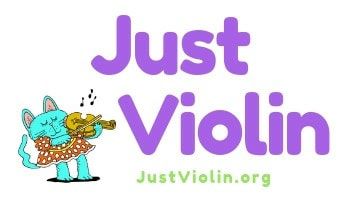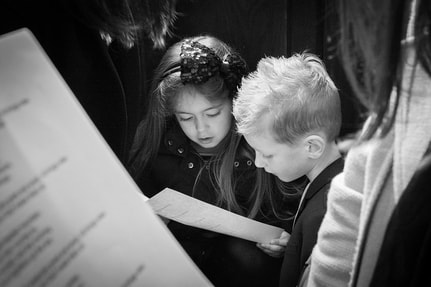The Benefits of Learning Music
by Cornel Suigeneris
© JustViolin.org
Music from time immemorial, has always played a vital multifaceted role in all parts of human life – from entertainment to education, and even health. Music has always played an immense role in all of these, and its role cannot be underemphasized. Music, as defined by many, is a universal language whose intrinsic value cuts across different aspects of our everyday life. It is not just playing musical instruments or singing. There are many benefits one can derive from learning music, some of which include:
- Improved well-being and enhancement of intellectual functions
- Breeding of new friendships
- Increased self-confidence, belief, discipline, and tolerance
- Heightened creativity
- Better connection and teamwork
The most common misconception about the benefit of learning music borders around people not being sure of their motivation to learn music. You hear them ask, why should I learn music? Or what do I stand to benefit from learning music? Why can't I focus on things that will be useful for my career and the actualization of my goals, or use the time to learn about financial investments, develop my leadership skills or some other endeavor?
While knowing how to manage one's finances and knowing how to lead are essential to achieving set goals in life, music is beneficial because its values are all-encompassing. However, the immense benefits one stand to gain from learning music is less evident at the initial stages than that of leadership and finance. Still, no one can deny the opportunity it gives people to sharpen skills that will be beneficial to one's professional and private life. There are many things one stands to benefit from learning music, but this article will limit its focus on the aforementioned benefit.
Improved well-being and enhancement of intellectual functions
Research has shown that listening to music causes significant health improvements through the following ways, it reduces stress, lowers blood pressure, anxiety levels, and strengthens immunological response and makes music learner more resistant to viruses. Music learning is a social activity that keeps one's minds active. It is especially important in protecting ourselves from mind-related diseases.
Studies have shown that learning music can enhance the mind when one starts to learn it at an early stage. What then happens if you have passed this early stage of learning? It turns out that learning music at an older age can do wonders for your mind as well. In a study conducted at the University of South Florida, adults aged between 60 and 85 were given piano lessons. Six months later, most of them exhibited improved verbal fluency, information processing skills, memory, and other cognitive functions.
Studies have shown that learning music can enhance the mind when one starts to learn it at an early stage. What then happens if you have passed this early stage of learning? It turns out that learning music at an older age can do wonders for your mind as well. In a study conducted at the University of South Florida, adults aged between 60 and 85 were given piano lessons. Six months later, most of them exhibited improved verbal fluency, information processing skills, memory, and other cognitive functions.
Breeding of new friendships
Learning a musical instrument and playing with others who know how to play it create something beautiful for friends and loved ones to enjoy, which eventually brings people closer.
If a person masters the instrument to a stage where they can perform in public, they will always have a connection established with their audience at each opportunity where they get to play. If you play with a group of musicians, a sense of togetherness is shared among such musicians, who can collectively produce something beautiful.
If a person masters the instrument to a stage where they can perform in public, they will always have a connection established with their audience at each opportunity where they get to play. If you play with a group of musicians, a sense of togetherness is shared among such musicians, who can collectively produce something beautiful.
Music builds self-confidence, belief, discipline, and tolerance
Have you ever wondered how most seasoned musicians perform in front of hundreds, or even thousands of people, and perform with confidence? It takes a whole lot of confidence to perform such a feat, no matter how good you are. Learning music allows you to put yourself in that situation, and it helps you pull through them. The audience does not have to be a large one; you could be performing for just one person, group of friends, or your partner, but when you pull off that small performance, you will feel a whole lot better about yourself. The most interesting thing here is that confidence also rubs on other aspects of your life.
The ability to play music well depends on the amount of work and time put into learning. Learning music requires commitment and perseverance. These essential prices must be paid before realizing the rewards. No one can master their music craft without knowing the importance of patience and discipline.
The ability to play music well depends on the amount of work and time put into learning. Learning music requires commitment and perseverance. These essential prices must be paid before realizing the rewards. No one can master their music craft without knowing the importance of patience and discipline.
Music enhances creativity
Learning music opens up your perception and allows you to look beyond what is the norm, such that you can express yourself in a new way. Music is all about understanding basic rules and then using such rules to express yourself. This expression means you will sound beautiful and, at the same time, appealing to your listeners. It is no surprise that research has shown that most successful people have at one time or the other studied music.
Music helps you to connect with others better and make you a team player
Music, as a universal language, explains why many appreciate songs in languages that they do not speak or understand. You will be surprised at how music can bring you closer to people, especially if you need to socialize with people from other cultures. If you have ever met someone for the first time, and you lack a subject of discussion, asking the other person what his/her favorite song is a perfect icebreaker that will complement your knowledge in music.
When you see different musicians performing together, they always share togetherness and team spirit that is fueled by the music. Music performance always involves listening to your team-mates and watches their facial and body language. Only then can you decide how you and your instrument can fit in seamlessly with the song. The ability to listen to what everyone is playing and then create something to fit will resonate with other areas of your life and make you an all-round team player.
When you see different musicians performing together, they always share togetherness and team spirit that is fueled by the music. Music performance always involves listening to your team-mates and watches their facial and body language. Only then can you decide how you and your instrument can fit in seamlessly with the song. The ability to listen to what everyone is playing and then create something to fit will resonate with other areas of your life and make you an all-round team player.


